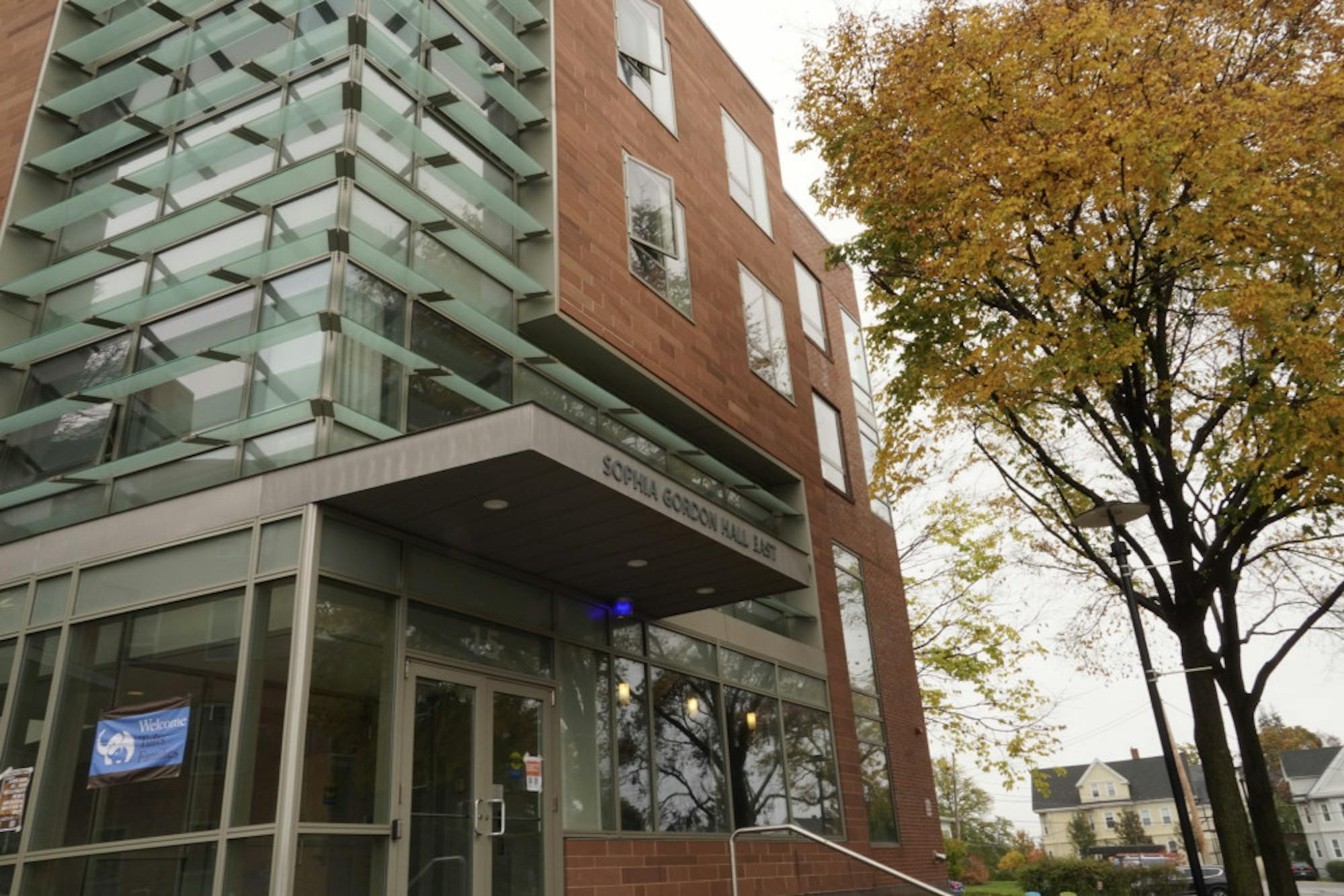Tufts Assistant Professor Sarah Fong, alongside two visiting assistant professors, presented research on the “Histories of Black and Native Schooling” at an event sponsored by the Center for the Humanities at Tufts on Oct. 19. In a panel moderated by Mary McNeil, an instructor in the Department of Studies in Race, Colonialism and Diaspora, the three speakers discussed their research exploring the oppression of Black and Indigenous people in the United States through the lens of the legacy of state-sponsored schooling.
McNeil opened the discussion by asking the panelists what drew them to their research interests. Fong noted that she once intended to go into social work, reflecting on her experience working with families in foster care and seeing the overrepresentation of Black and Indigenous peoples.
“I kept finding myself asking, ‘How did we get here?’...and [I] suddenly found myself in the 1860s looking at residential boarding schools for Indigenous youth,” Fong said. “I found that I couldn’t really make sense of it without understanding this really deep history of anti-Blackness, settler colonialism and the way that the state attempts to intervene in the lives, individually and collectively.”
McNeil asked the panelists how the state plays a role in the institutions they research. Fong’s work focuses on the Hampton Institute, a residential boarding school in Virginia that was founded by missionaries who she described as “quasi-state agents.”
“You have so much social upheaval going on, and although from our vantage point now it looks like the state knew what it was doing … I think by looking at the voices of Black and Native people… at schools like Hampton … as equal participants in political and social struggle alongside the state helps me to remember … that the aims of these schools are incomplete,” Fong said. “I have tried very hard to refuse to see the voice and the words of the state as transparent and stable.”
Khalil Anthony Johnson, a panelist and assistant professor of African American studies and education studies at Wesleyan University, described the role of the state in systemizing societal structures from antiquity to the present.
“I think that much of our sense of the world has been overdetermined by the state … It has created division between colonized people or Indigenous peoples and empires or nations,” Johnson said. “If you’re in the United States, you are in a land-based empire that conquered populations from the 16th century to the 19th century. ... And it still exists as an empire.”
The panelists emphasized that this state-informed pedagogy was met with resistance.
“I think a lot about [how] people can only be subjected to schooling for so long before they try [to] run away, before they try [to] burn down the school,” Bayley Marquez, an assistant professor of American studies at the University of Maryland, said. Land, like people, she explained, “can only be subject to that much violence for so long before it also has to deal with it in some way.”
Fong then described the current cultural awareness of these histories and how public scholarship on this subject can inform policy change.
“Currently, the secretary of the interior, Deb Haaland, is working on … a reconciliation process in the U.S. What I have to remind myself is that I’ve been thinking about these schools for 10 years now. I just assumed, ‘Of course everybody knows that the U.S. has this history,’” Fong said. “I forget that that’s actually not true and that a vast part of the U.S. population has no idea that this happened … There is actually a significant academic scholarship on these boarding schools, but I don’t think that gets translated to public awareness.”
An audience member asked the panelists how they understand their careers as educators while doing this research on schooling. Fong highlighted the need to move past simply achieving representation in schools.
“I think we really need to go beyond that and think about what we are teaching … I think very, very hard about whose voices, whose knowledge bases, whose histories and cultures are represented and who are we engaging with … as political actors,” Fong explained. “We have to engage with the knowledge of people and communities that have been silenced [and left] out of the curriculum.”
Marquez affirmed Fong’s approach and expanded on the present relationship between education and colonization.
“There has always been an idea that education can solve social problems,” Marquez said, still affirming the importance of learning these histories. “But … don’t think that because we learn them we are decolonizing. Because we’re not. We’re not liberating or abolishing anything. You’re learning, but that’s not doing anything. Think about: Does schooling … actually do something? And if it does not, what does?”






